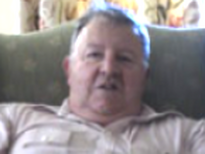Interview CP09

Back/neck pain since 1994. Spinal compression and arthritis. Surgery: Disc surgery in neck and surgery on lower back. Treatment: Epidural steroid injections. Pain management: Out-patient NHS pain management programme. Current medication: rofecoxib (Vioxx), amitriptyline, tramadol for flare-up. Past medication: morphine (oral and patches).
Group Managing Director (Returned to work after pain management); married; 3 children.
More about me...
Medication was making him too drowsy so his GP tried acupuncture, which was effective but short lived.
Medication was making him too drowsy so his GP tried acupuncture, which was effective but short lived.
The effects of the sort of heavy sedation really started to cause problems in my life. I was half asleep most of the time, couldn't think clearly and there was no way I could do any work satisfactory. So, I looked for alternatives but there wasn't any one that was obvious.
Even sort of looked at going to alternative therapists but nothing came of it. My Doctor decided to try some Chinese medicine on me in the way of acupuncture which in fact produced a remarkable improvement, didn't remove the pain but he was doing it in his spare time and doctors don't have much spare time, so he couldn't keep it up for a long time.
So you say that it was effective?
Very. If you can find someone to do it for over a length of'it doesn't last for long. It lasts a maximum a couple of days I find.
Said that epidural steroid injections became less effective.
Said that epidural steroid injections became less effective.
Depends how the anaesthetist feels at the time. The first occasion I had some local anaesthetic before the injections, the second time I think the anaesthetist was feeling a bit vicious and said 'You don't need any local anaesthetic you'll just have them'. They are very, very painful for a short period of time. They helped probably for about six months the first time.
The second time only for about two months and they loose their effectiveness as time goes by. It was the same when the anaesthetist who gave me the last series of injections recommended that I went to the Chronic Pain Management Course.
Was able to return to work after attending a pain management course.
Was able to return to work after attending a pain management course.
It was a twelve week course and starting very early every Monday morning, lasting a day each week and quite frankly the end result was quite miraculous. I suffer very little pain now, it comes and goes.
I took myself of painkillers completely, I still take non steroidal and anti-inflammatory drugs but they have little effect, side effect on me and a few other drugs associated with sort of the medication the... interventions that I had but none of those affect me.
I've now resumed a career, I 'm Group Managing Director of a large group of companies which I certainly could not have been without the Chronic Pain Management. It really was quite remarkable the results from it, it really only teaches you to manage the pain yourself together with some pretty stiff and difficult physiotherapy.
Now I living a reasonably normal life. I still have to get up and move about quite often but that's no embarrassment to anybody and I have to modify my driving skills and length of time that I am in the car I'm almost back to where I was in 90, 1990, quite incredible and I don't think I can say anymore than that about it.

